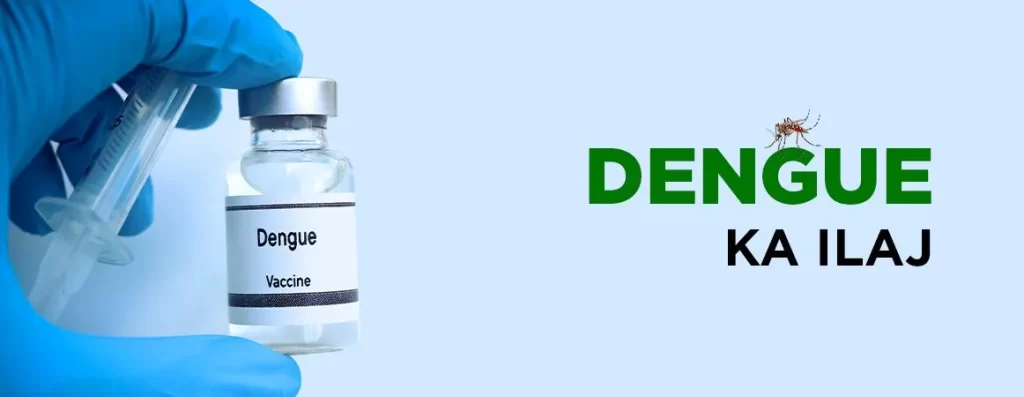Dengue Ka Ilaj
Dengue fever is a mosquito-borne viral disease that has become a significant public health concern in Pakistan. The country experiences recurrent dengue outbreaks, especially during the monsoon season, due to favorable breeding conditions for the Aedes mosquito. Early detection and appropriate dengue fever treatment are essential to reduce complications and ensure recovery. This article discusses the causes, symptoms, dengue bukhar ka ilaj, and effective strategies for dengue treatment in Pakistan.
Understanding Dengue Fever
The dengue virus, which causes dengue fever, is spread via the bite of an infected Aedes aegypti or Aedes albopictus mosquito. These mosquitoes thrive in warm, humid climates and stagnant water, making urban areas in Pakistan particularly vulnerable.
The disease can range from mild flu-like symptoms to severe forms, such as dengue hemorrhagic fever (DHF) or dengue shock syndrome (DSS), which can be life-threatening if not treated promptly.
Dengue Causes
The primary dengue causes include:
- Mosquito Breeding Grounds
Uncovered water storage, garbage dumps, and stagnant rainwater provide ideal breeding conditions for Aedes mosquitoes. - Climate Factors
The hot and humid climate, particularly during the monsoon season, facilitates mosquito reproduction and virus transmission. - Poor Sanitation
Lack of proper waste management and sanitation contributes to the spread of the disease in densely populated areas. - Travel and Mobility
Travelers from dengue-endemic areas can introduce the virus to new regions, increasing the risk of outbreaks.
Dengue Symptoms
Recognizing dengue symptoms is crucial for timely diagnosis and treatment. The symptoms, which typically manifest 4–10 days following a mosquito bite, may include:
- High Fever: Sudden onset of fever reaching 104°F or higher.
- Severe Headache: Often with pain behind the eyes.
- Muscle and Joint Pain: Known as “breakbone fever” due to its intensity.
- Skin Rash: A red rash may appear a few days after the fever begins.
- Nausea and Vomiting: Common during the acute phase.
- Bleeding Tendencies: In severe cases, patients may experience gum bleeding, nosebleeds, or easy bruising.
If symptoms like abdominal pain, persistent vomiting, or difficulty breathing occur, seek immediate medical attention as these may indicate severe dengue.
Dengue Fever Treatment (Dengue ka Ilaj)
Currently, there is no specific antiviral medication for dengue. Treatment focuses on managing symptoms and preventing complications. In Pakistan, the following options are commonly employed for dengue fever treatment:
- Early Diagnosis and Monitoring
Timely detection through blood tests, such as the NS1 antigen test or dengue IgM and IgG tests, is critical. Patients require close monitoring of platelet counts and hematocrit levels to assess the severity.
- Symptomatic Treatment
- Fever Management for Dengue Fever Ka Ilaj: Paracetamol is used to reduce fever and alleviate pain. Aspirin and non-steroidal anti-inflammatory drugs (NSAIDs) are avoided due to the risk of bleeding.
- Hydration: Oral rehydration solutions (ORS), coconut water, and fluids help prevent dehydration, a common complication of dengue.
- Rest: Adequate rest supports the immune system’s recovery process.
- Hospitalization for Severe Cases
Patients with severe dengue may require hospitalization for:
- Intravenous Fluids: To maintain electrolyte balance and prevent shock.
- Blood Transfusions: For patients with severe bleeding or dangerously low platelet counts.
- Oxygen Therapy: To address breathing difficulties in critical cases.
- Traditional and Supportive Remedies
While scientific evidence is limited, some traditional remedies, like papaya leaf extract, are widely used in Pakistan to boost platelet counts. These should be used alongside medical care under a doctor’s supervision.
Preventive Measures in Pakistan
Preventing dengue is as important as its treatment. In Pakistan, government initiatives and public awareness campaigns focus on reducing mosquito breeding and transmission. Key measures include:
- Eliminating Breeding Sites
Dispose of stagnant water in containers, pots, and discarded tires to reduce mosquito habitats. - Using Mosquito Protection
Apply insect repellents, wear long-sleeved clothing, and use mosquito nets to avoid bites. - Community Participation
Participate in local cleanliness drives and report mosquito breeding sites to authorities. - Fumigation Campaigns
Government-led fumigation campaigns during peak dengue seasons help control mosquito populations.
Conclusion
Dengue fever remains a significant health challenge in Pakistan, but timely diagnosis, proper management, and public cooperation can reduce its impact. By understanding the dengue causes, recognizing dengue symptoms, dengue ka ilaj, and accessing appropriate dengue treatment in Pakistan, individuals can recover effectively and help prevent further outbreaks. Continued efforts in prevention and awareness are key to controlling this mosquito-borne disease.
Post Disclaimer
The information contained in this post is for general information purposes only. The information is provided by "Dengue Ka Ilaj "and while we endeavour to keep the information up to date.
Legal Disclaimer
We do not claim to cure any disease which is considered’ incurable ‘ on the basis of scientific facts by modern medicine .The website’s content is not a substitute for direct, personal, professional medical care and diagnosis. None of the medicines mentioned in the posts ,including services mentioned at "medicineguide.us" should be used without clearance from your physician or health care provider.
Testimonials Disclaimer– : Results may vary, and testimonials are not claimed to represent typical results. The testimonials are real, and these patients have been treated with homeopathy treatment from our clinic . However, these results are meant as a showcase of what the best, Medicine can do with their disease contions and should not be taken as average or typical results.


